Cost of food in Germany
How much money do you spent on food in Germany?
I spent around 150€ per month on grocery shopping in Germany.
If you are a broke student and need to save money, cook by yourself.
Eating outside in Germany is very expensive in the long run. It is not like Taipei, Bangkok, Saigon or any other major Asian city with a night market culture where you can indulge yourself every day for cheap.
Budget friendly options
The most common takeaway food stalls in Germany sell Kebap (3-6€), Bratwurst (2-3€) or Fried Rice (5-9€).
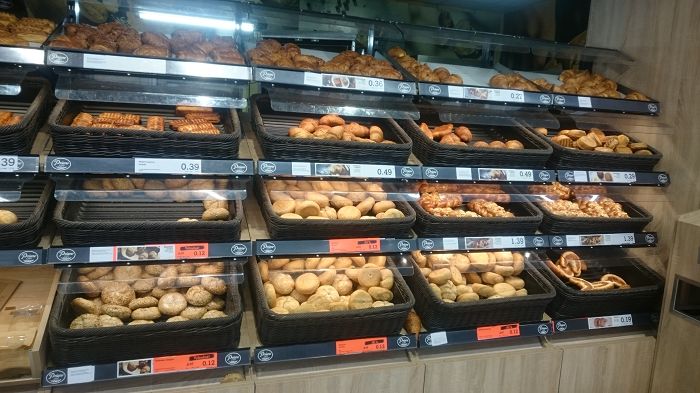
Self-service baking station in a German supermarket
Other options are self-service baking-shops like Backfactory and Backwerk. Nowadays, most supermarkets also have in-house self-service baking-stations like Lidl, Aldi, Rewe, etc. ..
The low prices of grocery
Compared to other industrial nations, Germany has the lowest costs for food.
One of the reasons is the strong discounter culture that has been thriving ever since the supermarket chain Aldi entered the food retail sector. Each time a major discounter chain changes its pricing policy, others immediately follow.
To illustrate the price levels, I have taken pictures of various items I bought (05.10.2017) in the supermarket.
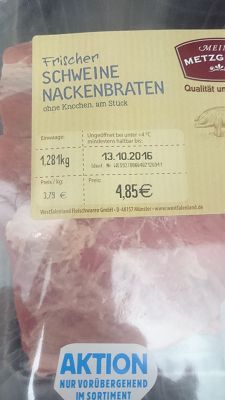
German pork neck for a pork roast dish
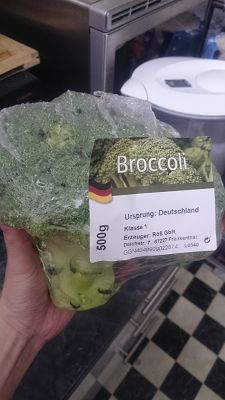
500g of Broccoli domestically grown in Germany for 0,59€
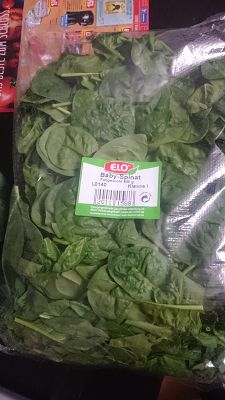
500g of baby spinach domestically grown in Germany for 0,99€
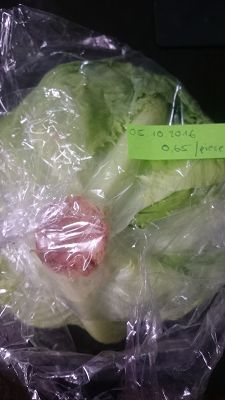
Iceberg lettuce domestically grown in Germany for 0,65€
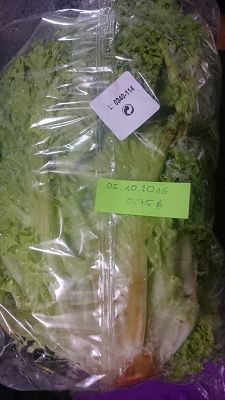
Frisée lettuce/ Curly endive domestically grown in Germany for 0,75€
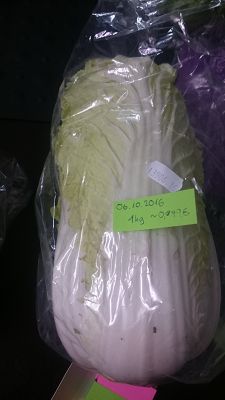
1kg of Chinese cabbage domestically grown in Germany for 0,79€
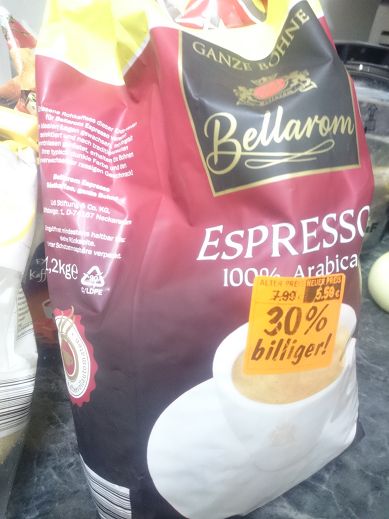
1,2kg for 5,50€ -Espresso Arabica
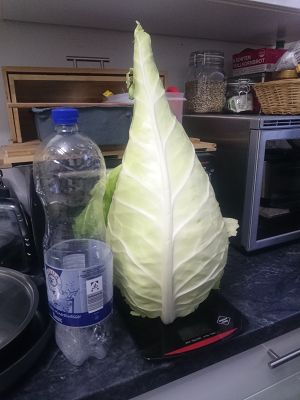
1,3 kg of pointed white cabbage for 0,88€
…
Food Quality
According to my mom (a person of genuine authority), discounter house brands used to be a lot inferior to branded products in terms of taste and quality in the 80s and 90s. This has changed overtime with the fierce competition among Rewe, Netto, Aldi, Lidl, Penny Markt and other supermarket giants.
Nowadays, discounter products are not only three to four times cheaper, but they are also often on a par or in some cases even superior to branded products.
Stiftung Warentest, one of the most trusted entities for consumer interests, regularly runs quality checks and awards superior products with their logo and a scoring. Some discounter items have received great scores, and some can even claim the title of “Testsieger” (the best product in the tested category).
Brands and manufacturers are then allowed to use these logos to promote their products. In contrast, products with a bad scoring will be brand marked with either “mangelhaft” or “ungenügend”, leading to German consumers shunning the product or even the entire product line.
Save money and get a good deal
Some of these no-name or store branded products come from the same manufacturers who also produce for the more well-known brands. It is a good deal for them, since they can use their production capacity to the fullest to make some extra Euros.
An ambitious German “detective” has identified 300 of such products and compiled a list to help fellow Germans save money¨on quality products. You can check a free slider preview here and here.
You can also practice your own detective skills and use the free database provided by the German magazine Focus

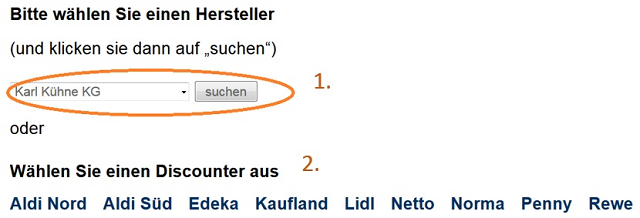
- Select a brand and click on suchen to identify their cheaper counterparts
- Or select your discounter-supermarket to see which products are produced by the same manufacturer.
How about organic food?
Organic food is usually marked with a “Bio” label and nowadays available in any type of supermarket. It usually costs 2-4 times more than the conventional products.
Seasonal organic vegetables and fruits are the best bargain with a reasonable prices, since they are not imported from another country. This is especially true for broccoli, carrots and potatoes. Also consider free marketplaces if you want to support regional farmers.
Here is my take on this:
Look, I totally understand if people want to support organic farming. I am a total advocate for that. Consuming meat, fruits, vegetables and other things that are too cheap is also supporting industrialized agriculture which has hazardous effects on water, arable land and ultimately the environment.

Maybe you could afford ramen if you didn’t blow over $100 on boots !?!? -The point is to get your priorities straight
If you are a student and still rely on your parents as your main source of income you should really reassess whether the money needs to be spent on an excessive eco lifestyle where everything you consume needs to be organic.
When I was living in a dormitory, I came across a lot of local students who don’t work but admittedly feel the need to spent around 300-400 Euro on organic food alone each month. The part that annoys me is, when they whine about not having enough money to pay for basic bills.
Invest in your eco lifestyle when you have a job and can afford it and not when you are financially dependent on others.
So, what is your take on grocery shopping in Germany?
How much do you spent on food each month in your home country?
Let us know!
Extra:
The app “Too Good To Go” allows you to reserve/buy take away lunchboxes with unsold leftovers from participating restaurants, buffets, bakeries and snack-sushi bars at a heavily discounted price.
The Danish startup has released this app to reduce food waste.
Unfortunately, not all cities are covered yet, but it is still a great way to save money on food in Germany.
Here is how it works: